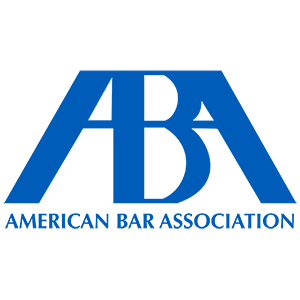HHS Issues Final Health Care Workers Rule Fulfilling Trumps Promise Of “Conscience And Religious Liberty”
August 15, 2019
America is the home of the free, where citizens are able to exercise a broad range of First Amendment Rights. However, what happens when health, safety, and ethics collide with religious beliefs? HHS’s new rule puts into question whether health care workers should be allowed to put their personal beliefs above patient care. Last month, the U.S. Department of Health and Human Services (“HHS”) issued the Final Conscience Rule (84 FR 23170), which “implements full and robust enforcement” of existing laws that protect what the administration calls “conscience rights” for health care workers. The rule was set to take effect on July 22, 2019. When Dennis J. Herrera, the city attorney of San Francisco, filed a lawsuit seeking a preliminary injunction to halt the rule from taking effect, HHS agreed to delay it until at least November 22, 2019.
What is the Rule?
In late 2008, the HHS finalized a rule to enforce amendments meant to protect the “consciences” of healthcare workers. During the Obama administration, the rule was greatly eroded. However, the Office of Civil Rights maintained its ability to investigate alleged violations of conscience protection laws. The Trump administration promised to strengthen these protections by instating a new and final rule addressing the rights of healthcare workers.
The new “Conscience” rule, (hereinafter “the Rule”) first proposed in January of 2018, implements enforcement of 25 provisions aimed at protecting the religious and conscience rights of everyone in the healthcare field. Specifically, the law protects healthcare entities and providers from having to participate in procedures about which they may have a moral dilemma. Specific procedures mentioned in the Rule include assisted suicide, abortion, and sterilization. However, the Rule goes much further. Healthcare workers are protected from having to perform any action that has an “articulable connection” to a service to which the worker objects. In other words, the Rule affects payments, coverage, and even referrals for such services. Not only could a patient be denied service, the patient could be denied basic information. These “protections” extend to anyone working for a “covered entity”, ranging from physicians to receptionists. The Rule also allows parents to prevent their children from learning about suicide prevention, child abuse prevention, childhood vaccines and other important topics.
Controversy and Delay
Substantial controversy has erupted over whose rights should prevail. Should a woman’s right to choose trump a physician’s moral beliefs? Can an emergency doctor refuse to treat a member of LGBT community? Must a pharmacist fill a prescription for birth control? These are only a few of the questions the Rule raises. The Rule is facing extra criticism in California. After filing a lawsuit declaring the Rule unconstitutional, San Francisco attorney Dennis Herrera stated, “The Trump administration is trying to systematically limit access to critical medical care for women, the LGBTQ community, and other vulnerable patients.”
Underserved communities may also find the rule particularly debilitating. Health disparities may increase when hospitals cannot afford to hire additional staff to perform procedures to which existing staff object. The rule has the potential to greatly limit access to procedures that are medically necessary and even life-saving. It may be especially detrimental to those in need of emergency services.
Other Concerns
Religious and moral beliefs span a wide spectrum. If a physician opposes conducting an emergency procedure, time spent trying to find another doctor could mean the difference between life and death. If a physician opposes treating a patient with AIDS for any reason, others affected may be afraid to seek help. The rule has the potential to reinforce stigmas associated with certain conditions, and seemingly offers a legal loophole for discrimination.
A last concern involves the perpetuation of ignorance regarding health for future generations. Since the rule permits parents to opt out of educating their children on a variety of topics, a public health crisis may be on the rise. Children could potentially reach adulthood with little information about contraception, child abuse, relationships, and other mental and physical health matters. Vaccines are among the serious topics that may be treated as unimportant and optional due to the Conscience Rule. The implications of the Final Rule are far reaching and only time will show the true impact it has on healthcare in the United States.
Check out the Federal Register to see the final rule and JAMA for some insight into other repercussions of it. We would love to hear your comments and thoughts about this rule. Please visit us on Facebook and Twitter, and post your comments.








